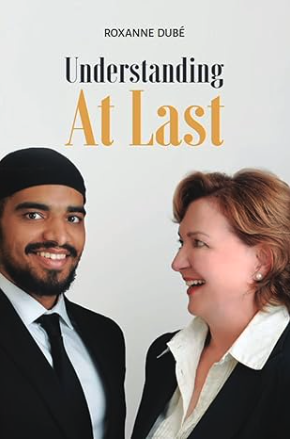Pursuing DEI Despite the Pushbacks
by Luiza Dreasher
YOU ARE A LIBERAL, WOKE, MARXIST!!
Imagine my surprise when I saw these words directed at me in response to my request for a subscription to my DEI+ Newsletter.
Beyond the initial shock, several reflections emerged:
- Incredulity. The use of such labels struck me with disbelief. I had assumed that name-calling was a relic of grade-school dynamics, something one should outgrow in adulthood. Perhaps that expectation was overly optimistic.
- Irony. I found it ironic that had this individual subscribed to my newsletter, he would have gained insights into the very concept of “woke.” This term, among others, has been a focal point in my writings, including the piece I wrote for The Inclusion Solution, “The Cultural Appropriation of ‘Stay Woke’ and the Need for Redefining Contemporary Narratives.”
- Sadness. Contemplating the climate and culture within this individual’s organization evoked a sense of sadness, particularly considering his role in Human Resources. The implications for the workplace dynamics in his organization became especially prominent in my thoughts.
- Determination. This incident reinforced the critical importance of DEIJ work. Instances like this underscore the urgency and significance of fostering diversity, equity, inclusion, and justice. I thought to myself: This is precisely why DEIJ work must be done!
Reasons for the Pushback
In recent times, there has been notable pushback against Diversity, Equity, Inclusion, and Social Justice (DEIJ) initiatives, with some people and groups expressing strong opposition to these efforts.
One aspect of this resistance can be attributed to a misunderstanding of the goals of DEIJ. Some individuals perceive these initiatives as attempts to undermine their hard-earned achievements. Or they may view them through a lens of reverse discrimination, fearing that efforts to increase diversity could disadvantage dominant groups.
Another source of opposition is simply rooted in resistance to change. DEIJ initiatives often challenge existing power structures and traditional norms, which can evoke discomfort among those wishing to maintain the status quo. Individuals who fear losing perceived advantages, or who believe that their interests are threatened, resist DEIJ efforts as a means of preserving the familiar and the established state of affairs.
Additionally, some feel that acknowledging and addressing systemic inequities implies personal culpability or guilt — resulting in defensiveness and opposition. This defensiveness can be rooted in an uneasiness with the idea that one might unknowingly benefit from, or contribute to, a system that perpetuates inequities.
It is important to emphasize that addressing systemic issues is not about assigning blame to individuals but rather about collectively working toward creating fairer, more inclusive systems. Encouraging open dialogue and framing these discussions as opportunities for positive change, rather than personal accusation, can help mitigate defensiveness and foster a more constructive approach to dismantling systemic inequities.
It is imperative to confront and overcome resistance through open dialogue and educational initiatives. This process will yield a deeper comprehension of DEIJ and foster an organizational culture where every individual is not only valued and respected but also inclined to remain engaged and committed.
The Benefits of DEIJ Are Real
In today’s business landscape, prioritizing DEIJ is not just a moral imperative — it is a strategic necessity for organizational success.
DEIJ initiatives can, indeed, foster a workplace culture that celebrates differences, ensuring that diverse voices are heard and valued. In fact, when we move beyond ethical considerations, research consistently shows that diverse, equitable, inclusive, and just workplaces are more resilient, more adaptable, and, ultimately, more profitable.
Below, I will highlight some of the concrete advantages that embracing DEIJ initiatives can bring to an organization:
1. Skill Development Around Difficult Conversations
Training focusing on DEIJ issues stands as a cornerstone for fostering a workplace culture where employees can cultivate crucial skills vital for empathic communication, active listening, and more effective conflict resolution. By equipping individuals with the skills to navigate challenging conversations stemming from cultural or social differences, organizations empower their workforce to address issues in a constructive way. Emphasis on these essential skills facilitates a more inclusive and harmonious workplace environment and creates an opportunity for deeper learning among team members. Through this proactive approach, organizations create a space where diverse perspectives not only coexist but are also understood.
2. Improved Dynamics of Diverse Teams
Improved team dynamics are another outcome of organizations that prioritize DEIJ since it provides an opportunity for shared understanding among team members while creating a sense of unity. By increasing awareness of each other’s backgrounds and perspectives, team members develop stronger relationships, enhancing overall teamwork. Heightened appreciation for diverse perspectives often translates into higher levels of creativity and innovation within the team. In fact, teams that leverage the strengths of their diverse members are better positioned to address challenges from various angles, resulting in a more dynamic and adaptable working environment. Ultimately, the positive impact of improved team dynamics extends beyond the immediate team, contributing to a culture of collaboration and innovation throughout the organization.
3. Increased Employee Engagement and Satisfaction
DEIJ efforts not only align with ethical principles, but also serve as a catalyst for increased employee engagement, satisfaction, and overall organizational success. By actively promoting DEIJ, companies create an environment that values and respects the unique perspectives and backgrounds of all employees. This can lead to a sense of belonging, as individuals feel recognized and appreciated for their contributions. DEIJ initiatives also play a crucial role in fostering equal access to opportunities like mentorship, professional development, and career advancement. These efforts contribute to cultivating a workplace environment that is characterized by fairness and justice, which can increase employee engagement and satisfaction.
4. Talent Attraction and Retention
Prioritizing DEIJ efforts significantly enhances an organization’s appeal to diverse talent. Companies that demonstrate a strong commitment to DEIJ initiatives are often viewed as attractive employers, particularly by individuals seeking an inclusive work environment. This commitment also plays a crucial role in talent retention, as employees who value diversity are more likely to stay with an organization that shares their values. In other words, organizations that prioritize DEIJ efforts not only attract top talent but also retain skilled professionals, contributing to the development of a more diverse and capable workforce. The cycle created by this commitment strengthens the organization’s reputation, making it a desirable workplace for a broad spectrum of talented individuals.
5. Positive Organizational Culture
DEIJ initiatives play a pivotal role in shaping a positive organizational culture. By actively embracing diversity and fostering an inclusive and equitable environment, organizations can create a workplace culture characterized by trust, openness, and collaboration. A culture of inclusion ensures that employees feel valued and respected, enhancing their sense of belonging within the organization. This, in turn, creates a positive and supportive work environment where individuals are empowered to bring their authentic selves to their professional roles. As employees experience a heightened sense of belonging, the overall organizational culture becomes more cohesive, fostering a community where diversity is celebrated, and each individual’s contributions are recognized and appreciated.
The Power of One
In my 20-plus years as a DEIJ trainer and consultant, I have always believed in “the power of one.”
As a professional, I am unwavering in my dedication to guiding clients toward tangible and positive changes within their organizations. I firmly believe that DEIJ training must transcend mere intellectual exercise. To make a difference, participants need to translate their newfound insights into actionable strategies. Only when we are able to move DEIJ from an abstract notion into the realm of action, can we start seeing a difference and noticing the impact.
At the end of my programs, I often include a segment I call, “Solidifying Your Learning.” I encourage my clients to openly share how they intend to implement change based on their training experience. This ensures that the training not only informs but also inspires concrete shifts in behavior and practice.
Below are just a few examples of what my clients committed to implementing:
- I can be a better listener and seek to understand more.
- I will be more respectful of differences.
- I will be more open to dialogue.
- I will step in as an ally now that I feel better equipped to interrupt microaggressions.
- I can better understand the impact of my words and take responsibility for the impact they have on others. I can now react in a way that educates and invites a conversation.
- I can recognize the impact of unconscious bias.
- I understand now that there is more to DEI than just race and gender, and I feel I can play a better role in supporting my company’s DEI initiatives.
These pledges for change signify the initial strides these individuals can embark upon in their journey to establishing a workplace that is more inclusive and equitable.
As individuals embrace being better listeners, showing respect for differences, and actively engaging in open dialogue, the organizational culture stands to benefit significantly. Stepping in as allies and interrupting microaggressions not only promotes a sense of belonging, but also contributes to a more supportive work environment. Likewise, understanding the impact of words, and reacting in a way that fosters education and dialogue all contribute to improved communication, collaboration, and overall inclusion.
Together, these actions demonstrate the significant impact each individual can have in championing their organization’s DEIJ initiatives and cultivating a workplace where differences are not only acknowledged but warmly embraced.
There is much to be acknowledged about the “power of one.” However, as an increasing number of individuals take a stand to foster a diverse, equitable, inclusive, and just workplace, we will also surely witness the transformative impact that the “power of many” can collectively bring about.
“This article was originally published on The Inclusion Solution blog by The Winters Group, Inc.”

Luiza Dreasher
Luiza has over 20 years of experience in the areas of diversity, equity, inclusion, and cultural competence development. Her expertise in global and domestic diversity has led to consulting jobs and presentations to numerous audiences, including the United States Department of Defense, Pioneer Hi-Bred International, Schreiber Foods of Brazil, MN Department of Public Safety, and numerous institutions of higher education. Luiza has taught courses focusing on Social Justice, Intercultural Communication, Cross-Cultural Race Relations, and Diversity Management. While serving as an Assistant Dean and Director of Multicultural and International Inclusion at Mitchell Hamline School of Law in Saint Paul, she developed and taught a course on Cultural Competence for the Legal Profession. Luiza is currently the President and CEO of Mastering Cultural Differences. As such, works with leaders who want to create a work environment where ALL employees feel valued, respected, and want to stay. In her book, Mastering Cultural Differences: Strategies for Leading a Global Workforce, she provides incredible insight into cultural differences impacting today’s diverse workplaces as well as best practices for increased performance in a global economy. In her weekly blog, the DEI Minute, she offers strategies related to DEI and cultural differences impacting the workplace. Connect with Luiza: Email: [email protected]



